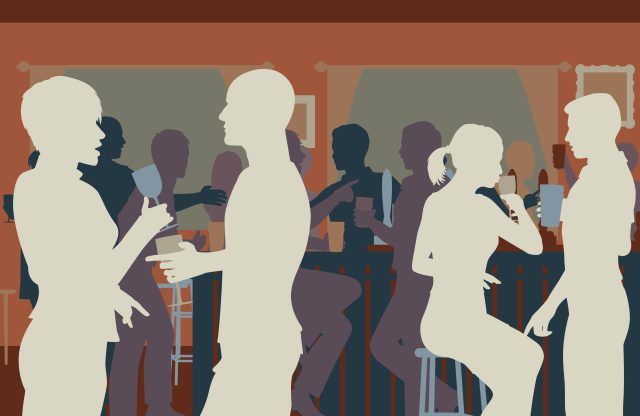Redefining Hospitality: The Imperative of Audio Accessibility.
Mumbli & Soundprint are tackling excessive noise in 1,350 venues, revealing 50% of London's spots exceed 80dBA, causing £20,000 monthly revenue loss. Our partnership will enhance audio accessibility, promote inclusivity, and boost revenue by addressing this issue.

Recently, Mumbli and SoundPrint were featured in a renowned trade magazine in the hospitality industry, a nod to the growing momentum in addressing audio accessibility in hospitality venues. Read the article here.
Despite the lively and vibrant ambiance associated with the hospitality industry, noise levels often become a significant concern for a large portion of the UK adult population suffering from hearing loss.
Noise: A Barrier to Inclusion
According to the Royal National Institute for Deaf People (RNID), one-fifth of UK adults, equating to 12 million people, experience hearing loss greater than 25 decibels – equivalent to a whisper. This makes it exceptionally challenging for them to hear amidst substantial background noise. Although more prominent in adults over 50, the RNID highlights that loud music, whether at gigs or through headphones, is a primary cause of tinnitus and hearing loss in under-30s.
Marion Marincat, Mumbli's founder and CEO, experienced an 80% hearing reduction at age 26 and emphasized to db that overwhelming noise renders venues inaccessible and unwelcoming to those with hearing reduction or noise sensitivity. This results in a monthly loss of approximately £20,000 for some venues.
Collaborating for Change
To address this, Mumbli partnered with SoundPrint, an app created by Gregory Scott, who is also hard of hearing, that assesses sound levels. Marincat explained, “Mumbli is working with a number of organisations - like WHO, the UK Noise Association and the European Federation of Hard of Hearing - to certify venues for sound in the UK and make them audio accessible for the 20 million people who are noise sensitive."
SoundPrint collects noise data from venues worldwide through crowdsourcing from visitors and customers. The collaboration, initiated by John Stewart, the president of the UK Noise Association, aims to provide an audio accessibility solution to venues classified as too loud or impossible for conversation due to excessive noise.
A Global Problem
SoundPrint's 2022 data revealed that eateries in London are Europe's noisiest and rank second globally to San Francisco. During peak times, over half of the surveyed restaurants in London had sound levels exceeding 80 dBA. According to The Control of Noise at Work Regulations 2005, employers must provide hearing protection and designated zones for employees when noise levels exceed 85dBA.
Technology as a Solution
Beyond distributing ear defenders, technology might offer a solution for both staff and customers to develop quieter interiors. Continuous sound monitoring can convert sound into visual context, enabling venue operators to adapt the space's sound atmosphere regularly, set up live noise notifications, and share regular reports with staff.
Methods to reduce sound include adding soft furnishings or, more effectively, installing echo absorbers and acoustic windows. Creating barriers between the kitchen and dining area can also help. A list of audio accessible venues is available on Mumbli's website.
Recommended Links:
- Audio Inclusivity for businesses
- SoundPrint App
- UK Noise Association
Final Thoughts
Creating a more inclusive environment involves more than urging venues to turn down the music. It necessitates a comprehensive audio accessibility assessment to reveal underlying issues and necessary improvements. Collaborative initiatives like the one between Mumbli and SoundPrint are significant steps towards creating a more inclusive and audio-compliant hospitality environment.
